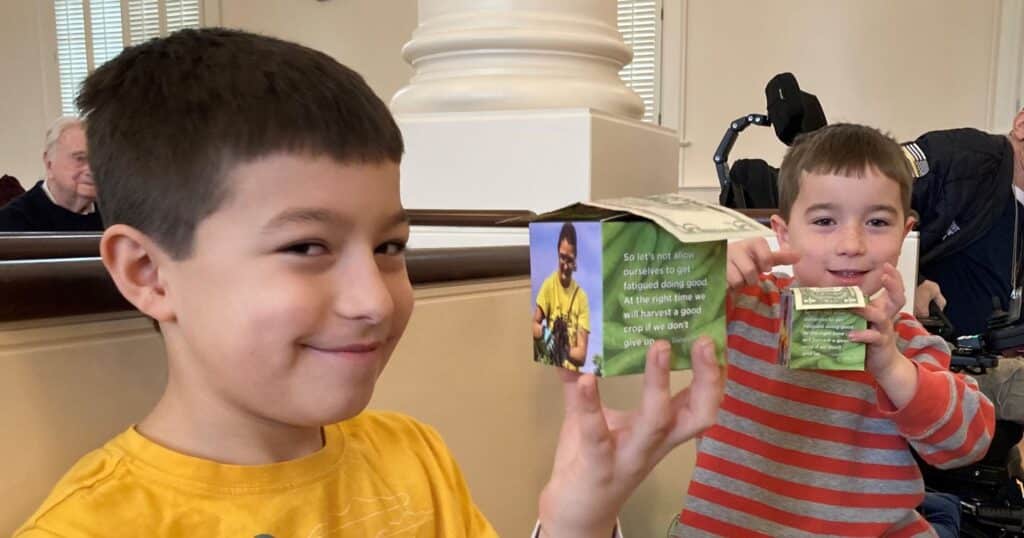For top givers, OGHS connects congregations with wider world
It’s not just about the money.
One Great Hour of Sharing — one of the United Church of Christ’s four annual special mission offerings — receives generous donations from churches across the country each Lent. The funds support disaster relief, refugee assistance and sustainable development, both domestically and around the globe. The UCC often disperses these through partners such as Church World Service, ACT Alliance and the World Council of Churches.
While total donations tailed off during the early days of the COVID pandemic, 2021 appeared to indicate a rebound. That year, UCC congregations gave more than $1.75 million to OGHS (amounts for 2022 are still being calculated). This was an increase of about half a million dollars from the total offering in 2020. That’s mostly thanks to more than two-thirds of churches increasing their 2021 giving.
But the congregations that financially support these vital ministries find that their giving is more than simply dollars. Instead, it’s a spiritual and relational practice that connects them to the wider world.
Give to receive
The Rev. Eric Fistler, senior pastor of First Congregational Church of Crystal Lake, Ill., has been an eyewitness to this work.
“OGHS connects us with people all over the world, bringing food, water, disaster relief, refugee assistance and peacemaking wherever the need is greatest,” he said. “OGHS takes us beyond the headlines and deeper than thoughts and prayers to hear transformative stories about the empowerment of women in Ghana, the peacemaking accompaniment in Palestine, stigma-reducing education about HIV in Lesotho and connecting with refugees from all over the world.”
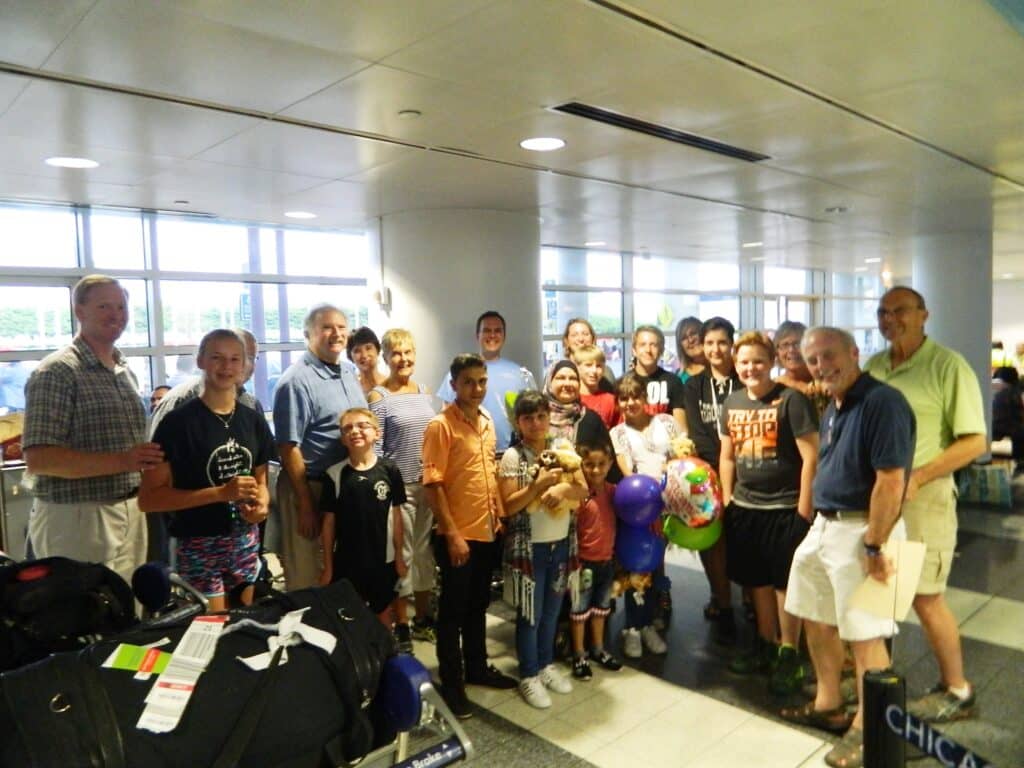
Out of all UCC congregations, Fistler’s raised the second-most money for OGHS in 2021. He explained that church members have committed to assisting refugees for years.
“Starting in 2016, FCC was moved by the growing refugee crisis in Syria and the partnership between RefugeeOne and OGHS,” Fistler said. “We reached out to RefugeeOne, a Chicago-based refugee resettlement agency, and were honored to welcome a Syrian family into our community and our hearts. Since then, we have been privileged to welcome families from Syria and Afghanistan.
“This last year, the whole church celebrated as the first family from Syria became U.S. citizens,” he added. “In all of these relationships we have received far more than we could ever hope to give.”
Transformative experiences
That theme — to give is to receive — is perhaps the most important point for Fistler.
“For FCC, OGHS is not only about transforming the world, but about being transformed ourselves, for we truly cannot live the abundant life, until every person has what they need to live the abundant life,” he said. “The connections OGHS has forced in our community has opened our hearts and minds, dismantled our stereotypes and brought us closer to God’s kingdom.”
Fistler knows from personal experience the difference that such global mission outreach can make — for the world and for oneself.
From 2006-2008, he served as an ecumenical accompanier and then the U.S. national coordinator for the WCC’s Ecumenical Accompaniment Programme in Palestine and Israel.
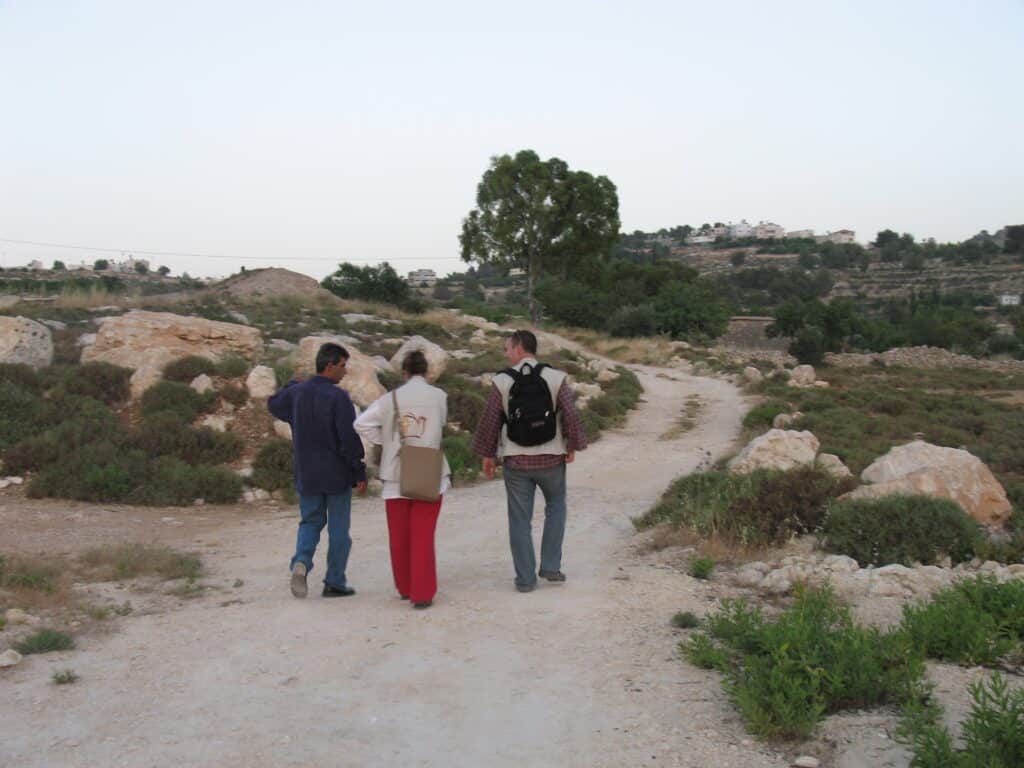
“I saw firsthand the transformative effect of OGHS as we walked with Palestinians living under the oppression of occupation and worked with Israeli and Palestinian peacemakers,” he said. “In our accompaniment, advocacy, listening and witnessing, we helped in dismantling stereotypes, making sure stories were heard and continue to work for change back home.”
Fundraising with purpose
Other congregations also feel the pull to connect to their neighbors, at home and abroad, through OGHS.
First Church of Christ Congregational in Glastonbury, Conn., was OGHS’s top giving church in 2020 and 2021. The Rev. Kate VanDerzee-Glidden, First Church’s senior pastor, admitted that being “No. 1” was a source of pride to the congregation.
But, she emphasized, there’s a missional purpose behind the enthusiastic fundraising.
“OGHS is critical to the mission of First Church because our members want to live out the Biblical mandate, found in both the New and Old Testaments, ‘to do justice, to love kindness and to walk humbly with God’ and ‘to love our neighbors as ourselves,’” VanDerzee-Glidden said. “We often say that First Church’s ‘elevator speech’ about its mission and purpose is simply this: to share God’s love with our members and to share God’s love in the world.
“Our community believes in building the beloved community so that we then can go out into the world using our time, talent and treasure to share God’s love, justice and hope near and far.”
Throughout Lent and into Easter, First Church highlights OGHS through its website, email blasts, newsletters, worship bulletins and announcements.
“We have a Sunday where we focus on OGHS and share real life stories of the people who are beneficiaries of the money raised,” said VanDerzee-Glidden. “We emphasize that during the upcoming year when a natural disaster occurs somewhere in God’s world, our members can be certain that their OGHS dollars will assist with emergency relief as well as in rebuilding assistance and future development aid.”
‘Whole-church effort’
Including all ages in the campaign has been a key component.
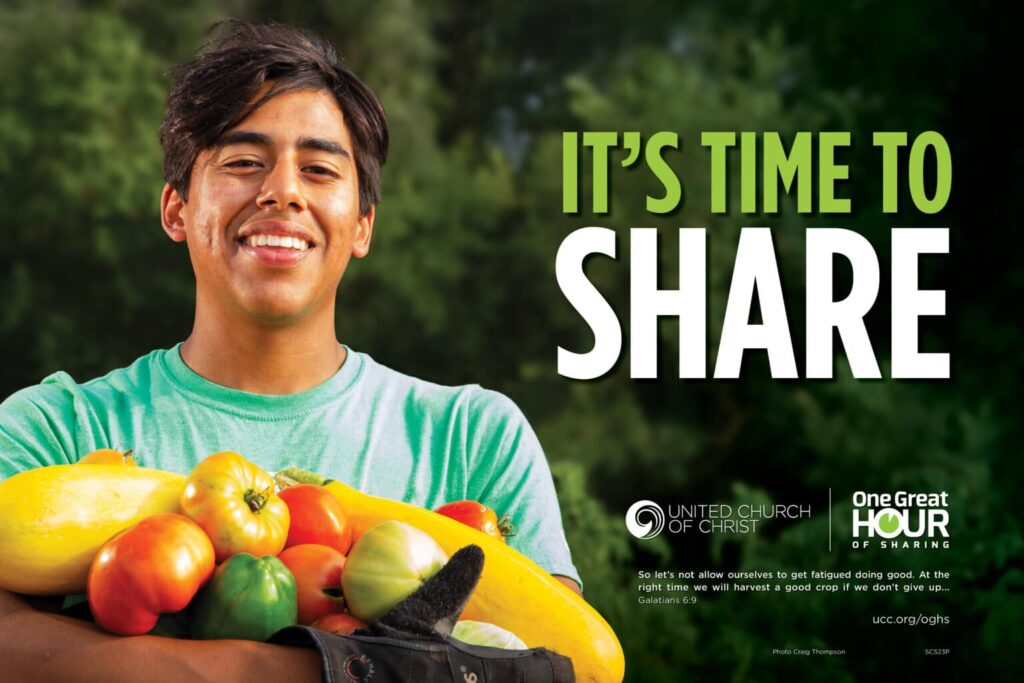
“I believe our church has been successful in raising money for OGHS because we make it a whole-church effort,” VanDerzee-Glidden said. “I was hired in June 2003 to work with First Church’s children and families, and, throughout the last two decades, we have made children an important part of our OGHS education and collection. Over and over again, in many ways and times, our children and youth hear us share our belief in sharing God’s love to our neighbors near and far.”
One way that the Connecticut church incorporates its youth is through direct collection from church members during Palm Sunday worship. The kids bring in coin boxes — which churches can order through UCC Resources — and “fleece” the congregation, as VanDerzee-Glidden humorously put it.
“We tell the parishioners beforehand this is happening, and they come prepared with bags of coins and lots of bills,” she said. “It’s joyful, holy chaos sending a couple dozen children out into the congregation, and we all love it.”
Through the Lenten and Easter Sunday donations, First Church supports not only OGHS, but also “a local urban/suburban youth mission camp that was started out of our church,” VanDerzee-Glidden explained.
“Our big-hearted people often say to us pastors, ‘If you know of a need in the world, just ask us,’” she said. “We firmly believe that the No. 1 rule of fundraising is, ‘You’ve got to ask.’ And so, that’s exactly what the pastors and church leaders have done and will continue to do.”
Raising funds — and awareness
Many congregations that support OGHS have a long history of giving. For First Congregational UCC in Eau Claire, Wis., its connection goes back to the very beginning.
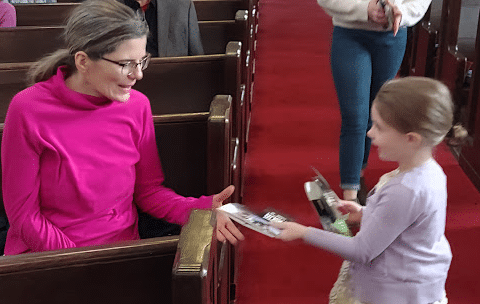
“Our church has participated in One Great Hour of Sharing since its start in 1949,” said Debbie Gough, who has helped spearhead the church’s campaign for about a decade. “The first year we gave $2,800 — the equivalent of $34,400.”
In keeping with that tradition, the congregation was one of the offering’s top donors in 2021.
“Our congregation is very generous, and the leadership are very supportive of mission giving,” Gough said.
Like First Church in Glastonbury, the Wisconsin church utilizes young, adorable collectors equipped with coin boxes to solicit donations.
“The first Sunday in Lent, the children, during the children’s sermon, go out into the congregation and hand out the boxes to anyone who wants one. Then, on Palm Sunday, the children take buckets or pots out into the congregation to collect coins — and dollars if people choose,” said Gough. “This is, of course, not how we get most of the money, but it brings attention to the offering and makes it fun.”
Even through COVID, the congregation found safe ways to include visible giving.
“The first year of the pandemic we had a ‘drive-up’ event where people could bring their boxes,” Gough said.
Donation tactics
Besides newsletter articles and in-church announcements, Gough explained that “the congregation responds well when provided with specific information.”
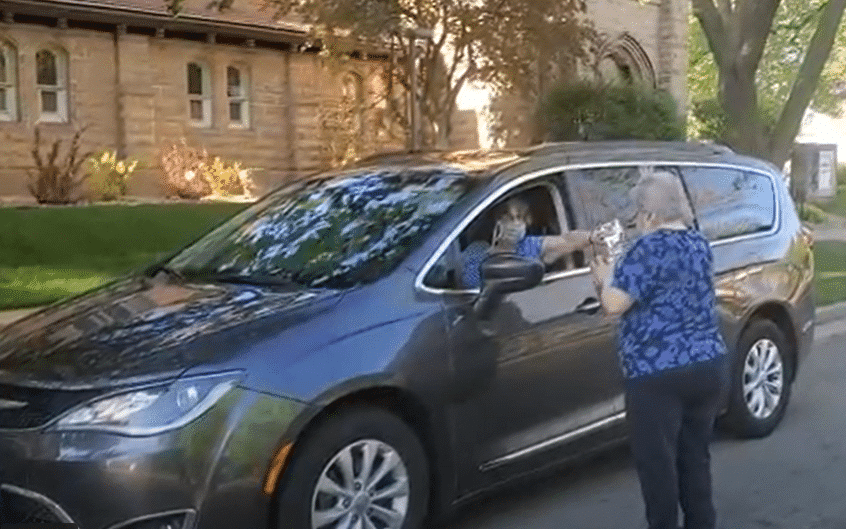
So she does just that, emphasizing that donations — which come from many churches both within and outside the UCC — go directly to projects for disaster relief and development, chosen by local partners. Gough also noted that she uses examples of specific projects.
“This year I will probably mention the project in Honduras about eco-stoves, since our church has a Creation Justice emphasis,” she said.
When disasters strike, Gough reminds herself and others that their gifts will aid people in those regions.
“I am comforted to know that my OGHS money will be going there,” she said. “Ukraine and the earthquakes (in Turkey and Syria) are both examples of this.”
Gough added that she is not shy about employing other tactics — including humor and “positive guilt” — to help loosen wallets.
And, judging by the generosity of First Congregational UCC’s membership, it appears these strategies work.
March 19 suggested for offering
Because of OGHS donations from local churches like these, the UCC is able to support many people worldwide.
“I am grateful for your enthusiasm in promoting the One Great Hour of Sharing offering in your churches, and for sharing your generous gifts to ensure that we work for the benefit of all,” said the Rev. Monica Dawkins-Smith, executive associate for the UCC’s Wider Church Ministries, which oversees OGHS.
WCM suggests that congregations use Sunday, March 19, as an offering date for OGHS. A multitude of resources — including guides, activities, videos, images and more — are available here.
“Participating in One Great Hour of Sharing is one of the great joys of our ministry at First Congregational Church of Crystal Lake,” Fistler said. “Our commitment to OGHS stems from our faith which calls us to see every person as a beloved child of God.”
Content on ucc.org is copyrighted by the National Setting of the United Church of Christ and may be only shared according to the guidelines outlined here.
Related News
A Prophetic Call for Justice and Peace in Palestine
The executive leaders of the United Church of Christ have issued the following statement...
Read More‘Love is Greater Than Fear’: Regional Youth Events get to the heart of gospel message
United Church of Christ teens attending this summer’s Regional Youth Events (RYE) are...
Read MoreUCC desk calendars available to order now
Prepare for your day, month and year with the United Church of Christ desk calendar —...
Read More